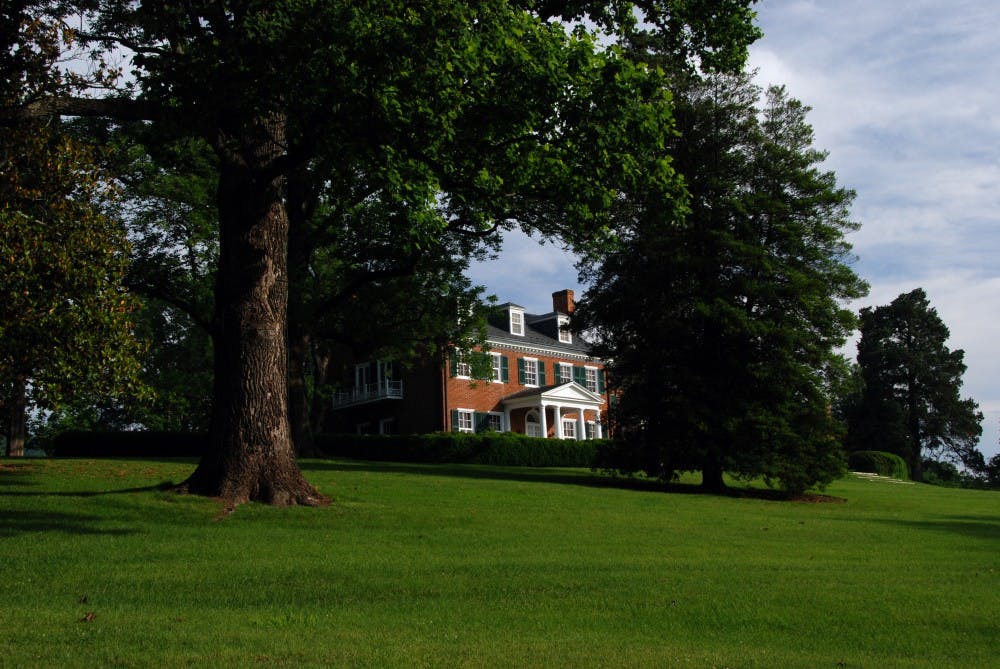The University is embarking on a new program at Morven Farms, transforming part of the former estate into “First Lady’s Food Lab” — named in honor of efforts to end childhood hunger by former Virginia First Lady Dorothy McAuliffe — to create greater access to food and nutritional information in the community.
Director of Morven Programs Stewart Gamage said the initiative comes as a part of former first lady Dorothy McAuliffe’s programs to impact access to food for younger students. The University looked to its 3,000 acre property to see if there was more it could do and named the program in honor of McAuliffe’s statewide efforts.
“We took what could be described as a storage facility in a garage and transformed it into what I think now will be a classroom that connects the community and the University around issues of food, nutrition, health and food security,” Gamage said.
Led by a steering committee — which included McAuliffe — the initiative raised $200,000 from over 25 donors. Construction of the Food Lab cost $150,000 and the remaining $50,000 will be used to fund community partnership programs at the lab.
The farm was donated to the University Foundation in 2001 by businessman and philanthropist John W. Kluge. Since then, it has been the site where former University students created the Morven Kitchen Garden, a laboratory dedicated to providing student leadership opportunities in sustainable market farming in 2011. Morven Farms also largely serves as a location for research, academic sessions and “Global Programming” which promotes teaching, outreach and collaboration between the academic community and leaders from around the world.
Gamage said the previous work done by the 250 student volunteers who participated in the Kitchen Garden project to influence the next generation of food sustainability practices had an impact on the new initiative.
“That really was sort of the anchor of the program, student inspired kitchen garden where any student could come out here and volunteer and learn how to grow, plant and harvest,” Gamage said.
Now, the “First Lady’s Food Lab” serves as a headquarters for these student programs, complete with a newly-renovated kitchen, classroom and restroom, since most prior work was done outside with no shelter or restroom access.
“It’s more of a full circle experience than before which was you come up here and work yourself to death and then go home,” Garmage said.
The University also intends for this new initiative to have a greater impact on the Charlottesville and Albemarle County communities due to growing interest in food and nutrition in the area. In particular, the program hopes to impact underserved populations that don’t have great access to nutritional food by partnering with local schools and nonprofits such as the Charlottesville Food Justice Network and the Charlottesville branch of the International Rescue Committee.
McAuliffe, University officials and members of these local organizations gathered earlier this month at Moven Farms for the launching of the new program.
“Science and technology is going to play a big part in how we feed the world and 10 billion people in the next decades and any learning that can happen at the local, state and national level is important,” McAuliffe said at the event.
One of the partners is the Charlottesville-area Stone-Robinson Elementary School, who attended the launch event Oct. 18. Teachers and students from the school will have access to the facility to teach children the importance of food health.
“U.Va. students will now be working with 150 students at the elementary school,” Gamage said. “They were over the moon excited because they were the central focus of the whole thing.”
University schools partnering with the initiative include the Curry School of Education, the School of Nursing and the Frank Batten School of Leadership and Public Policy.
Another partner is the Charlottesville division of the International Rescue Committee, a national organization that focuses on bolstering the skills and assets of immigrants to help them engage in their new communities. Extensive flooding in the area over the summer destroyed a farm belonging to the IRC, leaving skilled workers without crops or a place to work.
The program is hoping the immigrants participating will be able to teach valuable skills to students who want to learn sustainable food techniques through their new access to Morven Farms.
“They know how to farm, so it’s sort of the opposite of students,” Gamage said. “The students don’t know how to farm and Morven can help them learn how to do it. In this case, the new immigrant community are expert farmers, they just lost their farm so are there ways we can be helpful to them.”
Jeanette Abi-Nader, the executive director of City Schoolyard Garden — a nonprofit that helps create in-school gardens — says her organization has worked with student researchers at Morven Farms in the past. The new partnership, however, will provide assistance to do research and give more resources towards evaluating the greater food justice system in Charlottesville.
“This has been a great collaboration as City schoolyard garden and many of the partners that we work with through the network have increased our focus on equity and justice in the food system,” Abi-Nader said. “U.Va. is also looking to commit to those values so it has been a nice resonance between those values.”
Abi-Nader said that the new program at Morven Farms, along with the research provided, also helps connectivity in the Charlottesville area in addressing issues of food security and managing the disparity of food equity in the city.
“The Morven students will likely do their research independent and work on projects there but by being connected with organizations like the Local Food Hub or the New Roots program at IRC, or city square garden and the Charlottesville Food Justice Network, we can help make sure that we’re more aligned in an overall vision for our community,” Abi-Nader said.







